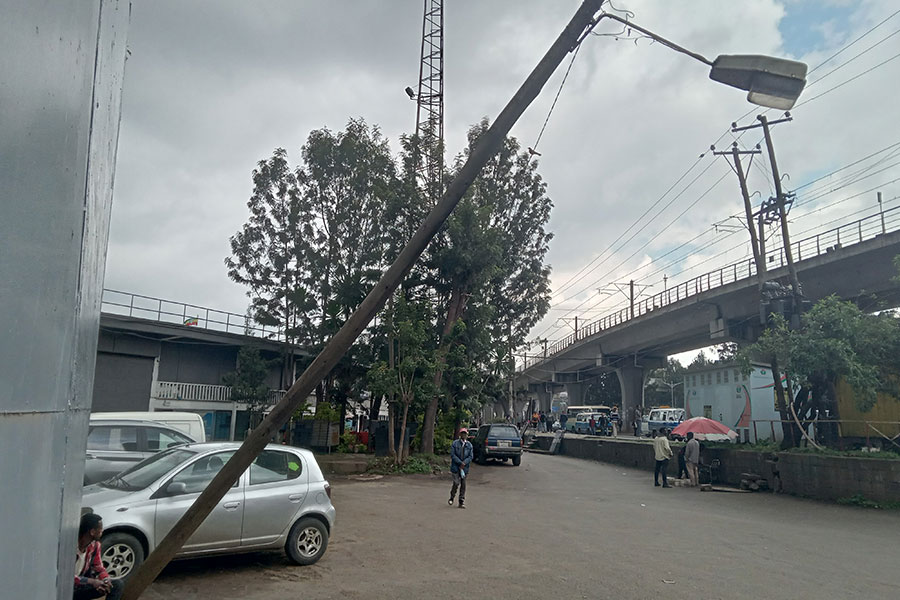
Mar 27 , 2021
By Carolyn Kissane
Some of us would think that a person is most likely to get help when others are present. It is actually the opposite, and the culprit is the phenomenon known as "the bystander effect." Popularised by social psychologists Bibb Latane and John Darley, two factors are attributed to this concept.
Primary is the diffusion of responsibility. Each person present thinks the other would extend help and wait on other bystanders to take action; therefore, avoiding personal responsibility to act. Had it been a single person present, then they would not have hesitated as much to take action as they would feel solely accountable. The other factor is social influence – not knowing what to do or how to act in the face of others' lack of action. Seeing that nobody is doing anything to help the individual in distress keeps others from intervening.
The bystander effect, as in many societies, is a significant problem in Ethiopia. I see it every day. There is that person who cares enough to take action or do her part while everybody else goes about their day.
Take households. One parent, usually the mother, does most of the housework and the caring for her children. In our workplaces, there is usually one employee that does their work beyond and above the call of duty, even though she is not properly compensated for her hard work, and several others who slack on the job.
In our neighbourhoods, there is that outspoken person bothering everyone with issues of littering, water shortages or neighbourhood security. They usually come off as sticking their noses in other people’s business.
There is an Amharic saying, "Ye fukikir bet sayzega yaderal," roughly translated to “Negative competition over who should close the door between residents will leave the door open.” It indicates that leaving the job for whomever to step in and do it will leave it undone.
Why can we not do it ourselves? Why do we wait for someone else to do it for us?
When we come across something that needs fixing, we should take the initiative to fix it. We can start in our households. For instance, in many households, if there is trash that needs to be put into a garbage can, dishes to be washed or beds to be made, we usually wait for either the maid (if there is one) or another family member to do it. This is a common practice that extends to other areas of our lives.
The mentality of “Why would I go through the trouble of doing it while I have other important things to do?” is dangerous. It makes us lazy and incapable. The problem of responsibility avoidance or diversion also has its roots in procrastination. People who tend to wait for others to take action instead of taking it themselves are procrastinators.
Another factor related to the bystander effect is the lack of delegation. Some people, myself included, are not good at delegating tasks to others as we think they cannot do it the way we want it or how we think it should be done. If people would just transfer responsibilities to others and let them be, then the procrastinators would somehow step up as there would be no one else to take responsibility.
Sometimes it is imperative to not act in order to let others take responsibility; that way, they learn not to wait on other people – a taste of their own medicine. This may come as a contradiction, but it is one way of teaching a lesson to those people who often avoid the responsibility of taking action. Then they would realise that they are on their own and feel obligated to take action. However, this is hoping that it will not create a vicious cycle where this action, done repeatedly, makes it favorable for the person who often takes responsibility to lay off accountability and get reluctant.
PUBLISHED ON
Mar 27,2021 [ VOL
21 , NO
1091]


In-Picture | Aug 18,2024

Sunday with Eden | Nov 23,2024

Letter To Editor | Apr 18,2023

Sunday with Eden | Dec 11,2020

Life Matters | May 29,2021

Life Matters | May 29,2021

Fortune News | May 11,2024


My Opinion | Oct 07,2023

Viewpoints | Jan 18,2020

My Opinion | 131674 Views | Aug 14,2021

My Opinion | 128040 Views | Aug 21,2021

My Opinion | 126002 Views | Sep 10,2021

My Opinion | 123625 Views | Aug 07,2021

Dec 22 , 2024 . By TIZITA SHEWAFERAW
Charged with transforming colossal state-owned enterprises into modern and competitiv...

Aug 18 , 2024 . By AKSAH ITALO
Although predictable Yonas Zerihun's job in the ride-hailing service is not immune to...

Jul 28 , 2024 . By TIZITA SHEWAFERAW
Unhabitual, perhaps too many, Samuel Gebreyohannes, 38, used to occasionally enjoy a couple of beers at breakfast. However, he recently swit...

Jul 13 , 2024 . By AKSAH ITALO
Investors who rely on tractors, trucks, and field vehicles for commuting, transporting commodities, and f...

Jun 28 , 2025
Meseret Damtie, the assertive auditor general, has never been shy about naming names...

Jun 21 , 2025
A well-worn adage says, “Budget is not destiny, but it is direction.” Examining t...

Jun 14 , 2025
Yet again, the Horn of Africa is bracing for trouble. A region already frayed by wars...

Jun 7 , 2025
Few promises shine brighter in Addis Abeba than the pledge of a roof for every family...

Jun 29 , 2025
Addis Abeba's first rains have coincided with a sweeping rise in private school tuition, prompting the city's education...

Jun 29 , 2025 . By BEZAWIT HULUAGER
Central Bank Governor Mamo Mihretu claimed a bold reconfiguration of monetary policy...

Jun 29 , 2025 . By BEZAWIT HULUAGER
The federal government is betting on a sweeping overhaul of the driver licensing regi...

Jun 29 , 2025 . By NAHOM AYELE
Gadaa Bank has listed 1.2 million shares on the Ethiopian Securities Exchange (ESX),...